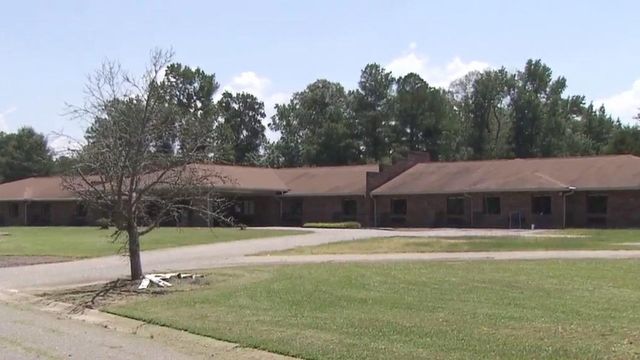Unlicensed company awarded grant to house migrant children must repay $3M, feds say
Federal officials are demanding a North Carolina group home repay more than $3 million in taxpayer money originally awarded to the company last year to house migrant children separated from their families.
Posted — UpdatedBut questions remain about the nearly $1 million the company may be able to keep — despite never caring for a single migrant child.
That's because the company had run into trouble with the state before.
In 2018, barely a year before securing the federal grant, DHHS officials took emergency action to shut down one of the company's group homes over allegations of serious health and safety violations against the young boys there.
After the initial $3.98 million payment last year, ACF officials restricted further funding to the company in the fall before shutting down the grant altogether as of Feb. 1.
New Horizon had until May 30 to provide federal officials with detailed reports about how the company spent the almost $4 million in grant money it received.
But about a week after that deadline, ACF officials told the company it had to pay back about $3.1 million — expenses the agency now calls "unallowable."
New Horizon CEO Barbara Brockington did not respond to requests for comment.
But an attorney with the Shanahan Law Group in Raleigh, which now represents Brockington's company, said New Horizon disagrees with the federal decision and "plans to file an appeal at the appropriate time."
"New Horizon looks forward to resolving these issues and getting back to serving children and families in need as it has done effectively for over fourteen years,” attorney Brandon Neuman wrote in a statement to WRAL News in late June.
U.S. Rep. David Price of North Carolina, who sits on the U.S. House Appropriations Committee, said ACF should have never approved funding for the company in the first place. And although he still has questions for the federal agency, he said "recouping $3.1 million is better than not recouping anything."
"I don't know what the company's capable of paying. I don't know how, in the end, how much of this money can be recouped," he said in an interview with WRAL News. "But we really need to press this and make sure that these taxpayer dollars are recovered."
Little clarity on taxpayer money
The Administration for Children and Families has provided few details on the status of New Horizon's grant since WRAL's initial reporting began in July 2019.
Through November, the agency repeatedly refused to provide the full value of the grant, how much federal officials actually paid out and whether they'd seek to get that money back after New Horizon failed to secure its residential childcare license.
ACF has yet to provide records to a single one of WRAL's Freedom of Information Act requests to the agency, including one filed almost a full year ago.
The agency's response came March 3, in a letter from ACF Assistant Secretary Lynn Johnson. She told the representatives that companies seeking grants under the Unaccompanied Alien Children program weren't required to disclose previous violations or license suspensions.
Johnson said the agency will now require that disclosure.
And going forward, she wrote that officials will reach out to state agencies during the vetting process to gather "any other information that would impact the ability to provide licensed capacity and safely care" for migrant children.
Price said that additional scrutiny is a good step toward improving one part of what he calls a "troubled area of national policy."
"They did the right thing in the end in pulling the contract and in supposedly laying down stricter standards for the future — that's good," Price said. "It shouldn't have taken as long as it did, but we'll hold them to that."
Through email, the Administration for Children and Families denied a request from WRAL News for an on-the-record interview, instead asking a reporter to submit questions in writing. The agency declined to even name the spokesperson responding to a reporter's questions.
A reporter asked in writing how it was possible New Horizon would be able to keep nearly $1 million in federal grant money.
"The actions required to fully closeout the grant award are ongoing at this time," the spokesperson responded on June 22. "We have no further comment."
• Credits
Copyright 2024 by Capitol Broadcasting Company. All rights reserved. This material may not be published, broadcast, rewritten or redistributed.






